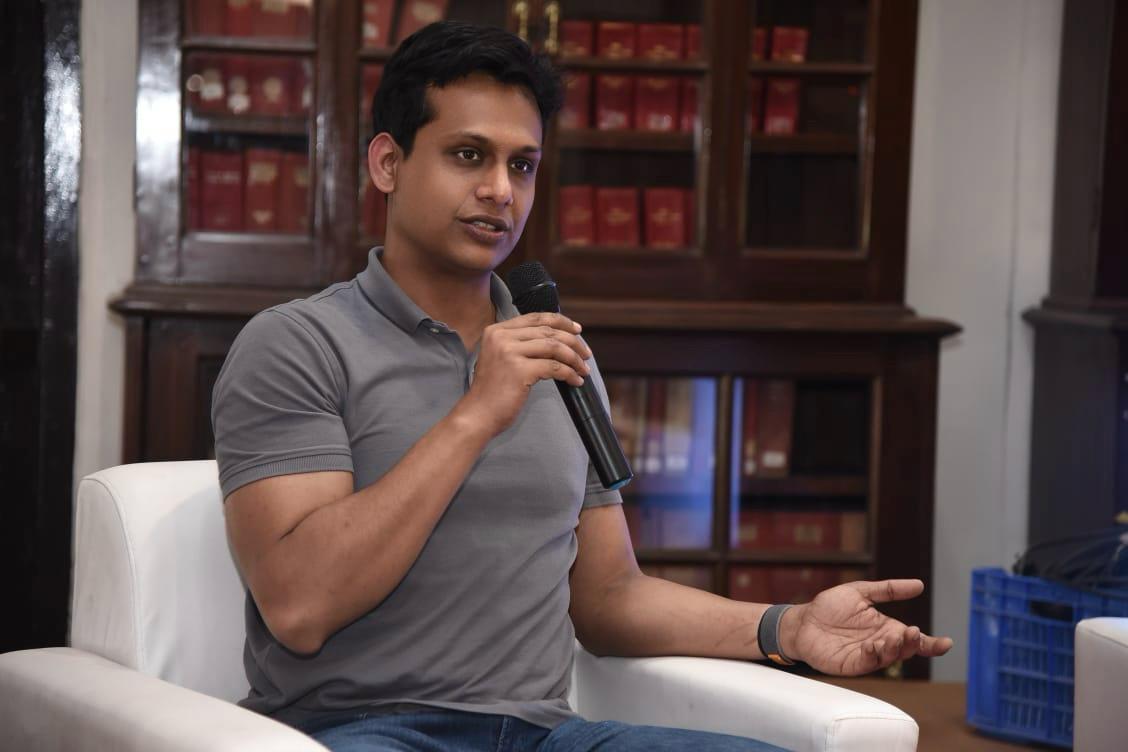By Somi Das
Copyright cpj

A new tax law in India that grants authorities sweeping powers to access emails, cloud accounts, and encrypted devices during searches has generated widespread concern among journalists and digital rights advocates, while adding to a raft of tax legislation around the world that could be weaponized against the media.
India’s parliament on August 12 passed the Income Tax Bill, 2025, raising fears that officials could misuse the expanded powers to reveal journalistic sources, surveil reporters, and target them with allegations of financial crimes.
Tax charges are increasingly being deployed by governments against journalists, including in Hong Kong and the Philippines, where Nobel laureate Maria Ressa and her news outlet Rappler fought a five-year legal battle against tax fraud accusations. India already has a reputation for targeting independent media through tax raids, money laundering cases, and opaque legal tactics. But the new tax legislation extends these powers into the digital sphere.
The law also adds to a growing arsenal of legal tools that Indian authorities have to supervise independent media. A slew of digital legislation, from the Digital Personal Data Protection Act and amended IT Rules, to the recently launched Sahyog takedown mechanism, has created new liabilities for journalists.
Few lawyers have tracked these developments as closely as Apar Gupta, the executive director of digital rights group the Internet Freedom Foundation. Gupta, a constitutional and digital law expert, has been involved in several prominent press freedom cases. They range from a legal challenge to the blocking of satirical website Dowry Calculator, to leading advocacy against the draft Broadcast Services (Regulation) Bill, which seeks greater state control over online content. He also spoke out about the chilling effect that NSO Group’s Pegasus spyware posed for journalists in India.
CPJ spoke to Gupta about the implications of the tax law for journalists and the government’s expanding powers of media oversight. The interview has been edited for clarity and length.
The Tax Department, Press Information Bureau, and Finance Ministry did not immediately respond to CPJ’s emailed request to comment.
How does the new Income Tax Act reshape risk for journalists in India?
In India, scrutiny of journalists through tax enforcement is not new. Critical reporting has often triggered tax notices. What’s new is the expansion of these powers into the digital sphere. Section 132 of the Income Tax Act already allows authorities to conduct searches if they ‘have reason to believe’ that income is being concealed. Under the new Income Tax Act, however, these powers extend far beyond traditional tax evasion. Section 247 allows authorities to access the so-called virtual digital space, a vague term that could encompass everything from your phone to your online accounts. The finance minister has even suggested that this power could be used to examine Google Maps history to track a person’s movements.
For journalists, this poses a severe risk. Devices that store communications with sources, unpublished investigations, and whistleblower disclosures could be swept up in fishing expeditions. The threshold for action is mere suspicion; there is no requirement to document credible evidence before initiating a search. Section 249 compounds the problem by preventing disclosure of the investigative reasoning behind a search, meaning a device could be surrendered without knowing the justification, and there is no guarantee that the seized evidence will be preserved securely.
How does this law measure up to international safeguards for privacy and surveillance?
Globally, the Necessary and Proportionate Principles, launched at the U.N. Human Rights Council in 2013, guide lawful surveillance. These principles set out 13 core requirements including legality, legitimate aim, necessity, proportionality, and judicial oversight to evaluate whether any state surveillance measure is consistent with international human rights law. Section 247 of India’s tax bill grants blanket powers to seize devices or access accounts based merely on suspicion. There are no checks, safeguards, or transparency measures.
Most journalists, for example, use a single device for payments, banking, receiving money, and communicating with sources. That unified stream of highly sensitive data, often stored on a smartphone, is left completely exposed under the new law. The law also violates the principle of proportionality. Authorities should only seize information strictly relevant to their inquiry, not an entire smartphone containing highly sensitive personal and professional data. Under the current provisions, it is unclear whether such safeguards would apply.
Can authorities legally compel tech companies to hand over private digital data if a journalist is suspected of tax evasion?
Yes. Just as banks were compelled to provide financial records under previous laws, tech companies can now be ordered to surrender emails, cloud storage, chat histories, and other account data. This extends the state’s reach far beyond physical documents into the digital realm.
This naturally leads to the question of what role digital platforms play in this new censorship regime?
Platforms are profit-driven and often collect vast amounts of user data for advertising. They are not champions of free expression. Yet, government demands can force platforms to act in ways that conflict with their commercial interests, such as removing content or censoring conversations.
Sometimes platforms, like X, align with civil society objections to overbroad state power, especially in the Sahyog portal case. But even X has reduced transparency globally, for instance, no longer disclosing government blocking orders on the Lumen database. Meta, with far more users in India, has rarely challenged government censorship at all.
Governments in different countries have turned to financial allegations to pressure independent media. Do you think India’s new income tax provisions put it on a similar path, even potentially leading the way in South Asia?
I’m not a global tax policy scholar. That said, India does have a track record of shaping the regulatory environment in South Asia. Parts of our Information Technology Act, for example, influenced Bangladesh to adopt similar measures. In 2022, Bangladesh introduced draft regulations for digital, social media, and over-the-top platforms. These rules, modelled after India’s 2021 IT Rules, aim to increase government control over social media and digital news media. Both sets of regulation seek to limit intermediary liability protection and introduce traceability within end-to-end encrypted services offered by platforms.
What I can say, with confidence, is that India is now testing a legal architecture that normalizes extraordinary access to personal digital space on mere suspicion of tax evasion, and that by itself is alarming for press freedom.
Beyond the tax law, what other regulations pose an imminent threat to journalists?
One of the most striking examples is the temporarily withdrawn Broadcasting Services (Regulation) Bill. The government wanted to introduce a licensing system that would have applied even to YouTubers and independent commentators. A lot of journalists who have left traditional media, either because of financial pressures or because newsrooms have become partisan, now rely on digital platforms like YouTube to reach audiences and make a living. The bill would have required anyone commenting on news and current affairs to register with the government.
People were outraged at the idea that even someone with a Substack, an X account, or a Facebook page could be forced to take a license or risk being blocked. This wasn’t a withdrawal, so much as the bill being put on ice after the criticism.
The data protection act has also raised alarms for journalists.
Absolutely. The Digital Personal Data Protection Act is already law, though not yet enforced. It amends the Right to Information Act, diluting one of the key exemptions that allowed access to information in the public interest. For journalists, the bigger worry is the lack of an explicit exemption for media. Without it, journalists could technically be treated as ‘data fiduciaries,’ meaning they might need consent before publishing stories that include personal data even when reporting on public officials. Editors’ Guild, Press Club of India, and other bodies have all flagged this. The government has brushed it aside with vague assurances.
Worse, the Data Protection Board, the body tasked with enforcing India’s Digital Personal Data Protection Act, reports to the government. It could target journalists selectively. For example, if a news outlet reports critically on government actions, the board could allege a data violation, impose fines, or initiate investigations. Even the threat of such action can deter investigative reporting, because journalists may fear political repercussions, legal hassles, or reputational harm, effectively chilling free expression.
During the recent India-Pakistan conflict, several independent journalists found their X accounts blocked without warning. Why does this keep happening?
We represented about 15 journalists and creators whose accounts were withheld in India. No legal orders were provided and within days the blocks were reversed, again without explanation. That lack of transparency is appalling.
The real issue is systemic. If there’s truly an emergency, the government has constitutional emergency powers it can invoke. But increasingly, we’re seeing departments exercise censorship powers without accountability, outside what the law permits. Over time, these powers expand in scope, creeping into more areas. That erodes the rule of law itself.
How effective is the judiciary in checking executive overreach in the digital sphere?
Courts are meant to be counter-majoritarian, but they operate within the prevailing state framework. Hence court judgements often support expanded government powers and defer to executive action. Cases like Pegasus spyware, internet shutdowns, and mass website blockings continue with limited judicial intervention.



